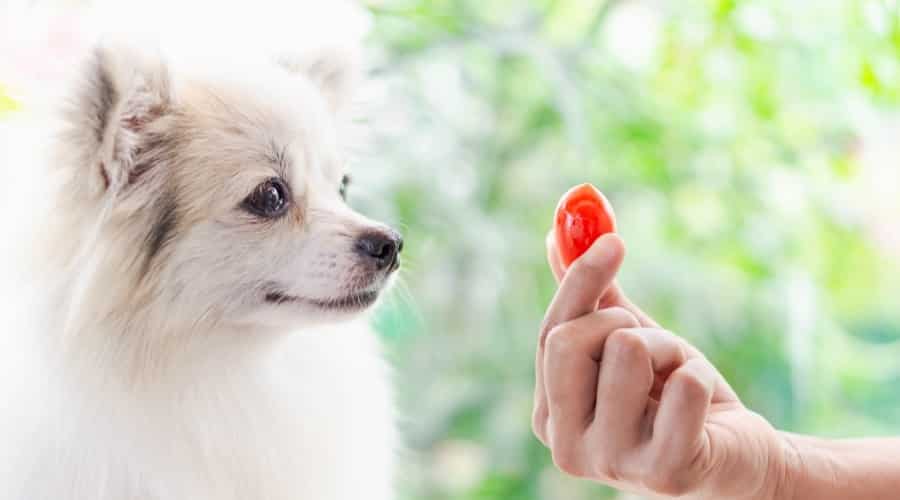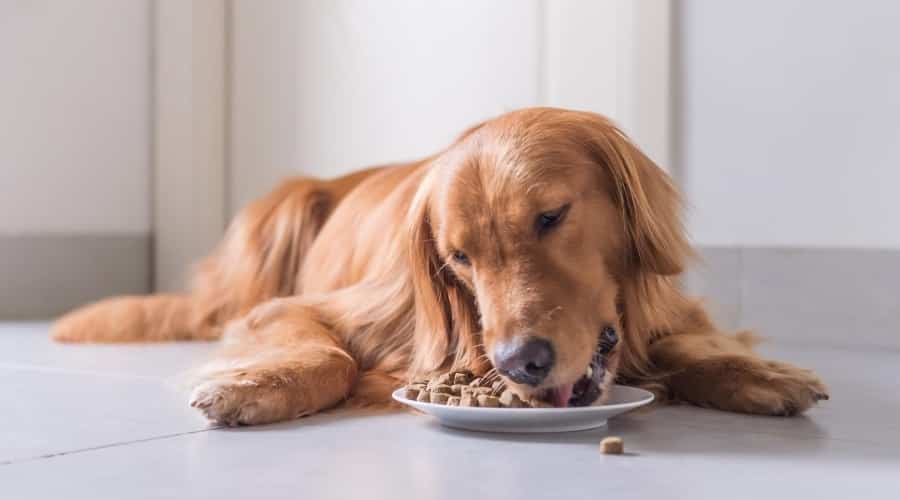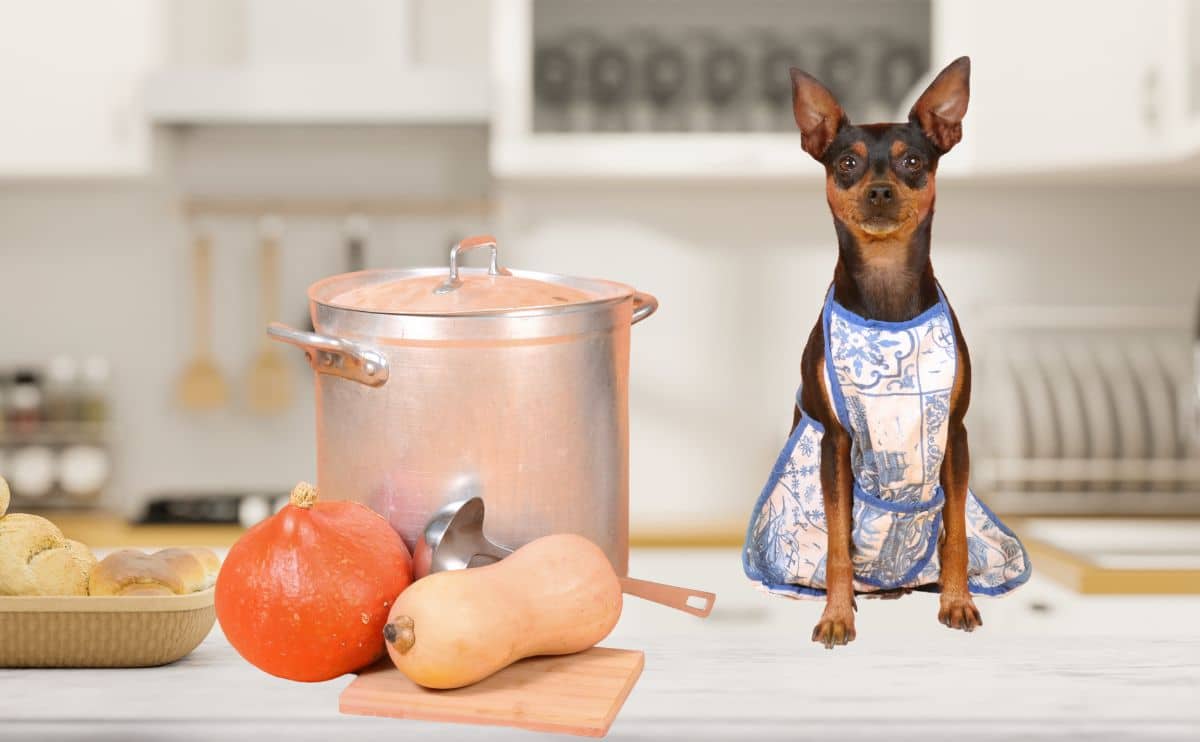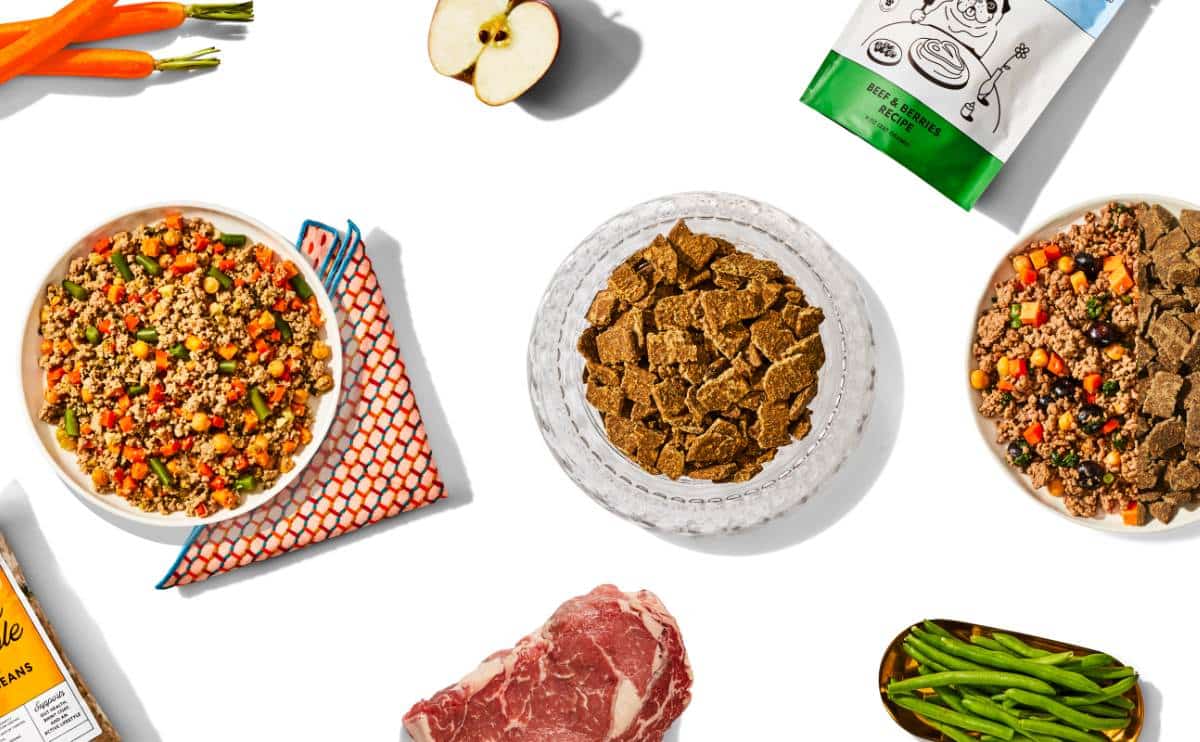Can Dogs Eat Tomatoes? Are Tomatoes Good or Bad For Dogs?
When you purchase through links on our site, we may earn a commission. Here’s how it works.
If you have a canine companion who is partial to a tomato or two, you may be wondering if tomatoes are safe for dogs. As a general rule, the answer is yes, but there are a few things you should be aware of if you do decide to feed tomatoes to your pup.
Table of Contents
There is plenty of conflicting information when it comes to tomatoes and canine consumption. For starters, yes, there are healthier alternatives that pose lower health risks to dogs. Some other healthy vegetable snacks include zucchini, squash, bell peppers, and sweet potatoes.
We recommend you stick with these veggies since they are generally considered canine-friendly. But the occasional ripe tomato should generally be safe for your pup. Let’s look at everything you need to know, and when it’s not safe to have your dog anywhere near a tomato.
Do Tomatoes Have Any Benefits For Dogs?

Many dogs enjoy the taste of tomatoes in the same way people do. Both sweet cherry tomatoes and large, meaty beefsteak tomatoes can be a tasty snack for dogs. But as mentioned, they must be ripe. If they are unripened, or your dog eats part of a tomato vine, these can be toxic to dogs. If your pup eats unripened tomatoes or tomato vines, you should place a call to your veterinarian.
Dogs may be able to get valuable nutrients from this superfruit, especially vitamins. They are well known for being an important source of vitamins, including vitamins C, E, and K. Tomatoes can also provide minerals such as potassium, folate, magnesium, and calcium. They have significant water content and contain plenty of fiber, which can aid in digestion.
Tomatoes are also rich in antioxidants. They are one of the largest nutritional sources of lycopene. This is an important antioxidant. Some studies suggest it reduces the risk of developing certain types of cancer and heart disease. In humans, lycopene has also been shown to prevent some diseases of the eye.
Beta-carotene, naringenin, and chlorogenic acid are also antioxidants that can be found in tomatoes.
Tomatoes in Dog Food
Some commercial dog foods contain small amounts of tomato as part of their composition in the form of tomato pomace. This is the by-product of manufacturing tomato-based products for humans. It may contain the skin, flesh, juice, and seeds of tomato fruits. It is often included in dog foods as a source of dietary fiber and vitamins.
Can Tomatoes Hurt My Dog?

Tomatoes are the edible fruit of the plant Solanum Lycopersicum. They belong to the nightshade family of plants which includes potatoes, eggplants, and deadly nightshade. All of these tomato relatives produce a toxin called solanine. As the name suggests, deadly belladonna is a nightshade plant, and is known to be extremely toxic to dogs as well as humans.
Ripened tomatoes though are usually safe for dogs. Unripened tomatoes and parts of a tomato vine can cause toxic harm to your canine companion because of their higher tomatine content. So in short, yes, tomatoes do have the potential to cause harm to your pup, which is why we recommend sticking to other safer alternatives.
Are They Poisonous to Dogs?
Although tomatoes belong to the same family as these other nightshade plants, they produce a slightly different chemical called tomatine. This is less toxic than solanine.
Tomatine is only toxic in very high concentrations. Luckily, ripe tomatoes contain such a small amount of this toxin that it is very unlikely to cause harm to most canines. Even if they consume a lot of them. Unripe (green) tomatoes do contain slightly more tomatine than ripe tomatoes. But even if Fido eats a lot of unripe tomatoes, the risk of toxicity is still low.
The highest concentration of tomatine, and therefore the highest risk of tomato poisoning, is found in the stems, leaves, and flowers of tomato plants. The green parts of a tomato plant have a pungent smell and are covered with small prickly hairs. This should make them unpalatable for most dogs. However, watch out for those pooches with an indiscriminate appetite or young inquisitive puppies!
Even if your pup does eat part of the plant, it would be unlikely he would consume a large enough quantity to cause problems. But it’s probably best to keep your tomato plants fenced off just in case.
Tomatoes do contain another potentially toxic substance called atropine. However, the concentration found in them is far too low to have any adverse effect. This is true even if they were to eat a huge number.
Canine Tomato Consumption Risks

Although tomatoes themselves are generally safe for canine consumption to eat, as with all treats, moderation is key. Large quantities could give your pooch a tummy upset. They are also acidic. So, particular care should be taken if your pet is prone to acid reflux or has a sensitive stomach.
As with any new food that you introduce to a dog, you should start by feeding a very small amount to see how they react. There is an unlikely risk that your pup might be allergic to them. If you see any sign of hives (small bumps that appear suddenly on the skin), swellings (especially of the head and face), coughing, or breathing difficulties then contact your veterinarian immediately.
You should also remember that tomatoes, although low in calories are unbalanced. This means they should follow the 10% treat rule. This means that, together with the calories in the rest of their treats for the day, they should make up no more than 10% of their daily calorie allowance.
Signs of Tomato Poisoning in Dogs

Tomato poisoning is extremely rare in pets. However, if you suspect your dog has eaten large amounts of unripe tomatoes or tomato plant then you should contact your veterinarian right away for advice.
The most likely result of a dog consuming too many unripe tomatoes or large amounts of plant greenery is a mild tummy upset resulting in diarrhea and/or vomiting. However, more serious signs of tomatine toxicity include lethargy, drooling, muscle weakness, loss of coordination, tremors, and irregular heartbeat. At very high doses, symptoms may even result in unconsciousness or death.
It is important to be aware that these symptoms are not specific to tomatine poisoning. There are many other conditions that can also cause these signs. With prompt and successful treatment by a veterinarian, most dogs will fully recover from tomatine toxicity within 24-48 hours.
[accordion]
Final Thoughts
If you are asking yourself if it’s safe for Fido to have a couple of tomatoes, the short answer is yes. Most dogs will enjoy the occasional ripe tomato as a tasty treat. Start by just offering him a bite or two of tomato to see if he likes it. Just like humans, dogs have their likes and dislikes. Some dogs may turn their noses up at eating tomatoes even if they are offered! If he seems to enjoy it and has no unwanted side effects, then feel free to offer your dog a tomato now and then as a treat.
However, be sure to never feed them unripe tomatoes. Make sure they don’t eat any of the tomato plant itself. If you are concerned that your dog may have eaten parts of a tomato plant, unripe tomatoes, or has any symptoms that you are worried about, then always contact your veterinarian immediately for advice.



